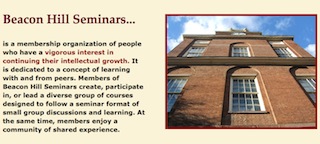John McCain’s final battle – this time with an aggressive form of brain cancer – is now over, and the debates over his legacy have yet to begin in earnest. Instead, we are awash in adulatory news coverage, which highlights McCain the icon, but obscures the man. Perhaps his performance in a pivotal New Hampshire Presidential Primary Debate, held in January 2000, just weeks before he defeated George W. Bush in that state’s primary – the first in the nation – is worth reviewing.
In this excerpt from the hour-long debate, moderated by NBC’s Tim Russert, McCain, the campaign finance reform candidate and rider of the Straight Talk Express, responds to breaking news regarding his lobbying the FCC on behalf of Paxson Communications, a campaign contributor. Let’s not forget that McCain’s reformist tendencies developed after he was criticized for exercising “poor judgment” by the Senate Ethics Committee for his role as one of the Keating Five Senators accused of corruption in 1989.
Although my follow-up question was admittedly intended to bridle him, McCain (in my view) comes across as brittle. Where is his famous sense of humor? Where the politician’s gift of deflection? McCain’s “brittle temper” was hardly a secret, but compared to other candidates on that stage, his smile is steely, his manner tense.
A self-described maverick and patriot, might McCain have been a touch too proud? Did his confidence in his own integrity, as the New York Times phrased it, “blind him to potentially embarrassing conflicts of interest”? McCain of course went on to lose the primary to George W. Bush, and perhaps self-love, rather than love of country, got in the way.
The intention here is not to dump on McCain – what would be the point? But — if he had been just a bit less attentive to his own honor, might we have avoided 8 years of George W. Bush? Think about that for a minute. That would indeed have been a legacy.
Click here:  to listen (6:14 mins).
to listen (6:14 mins).
Podcast: Play in new window | Download
Subscribe: RSS




